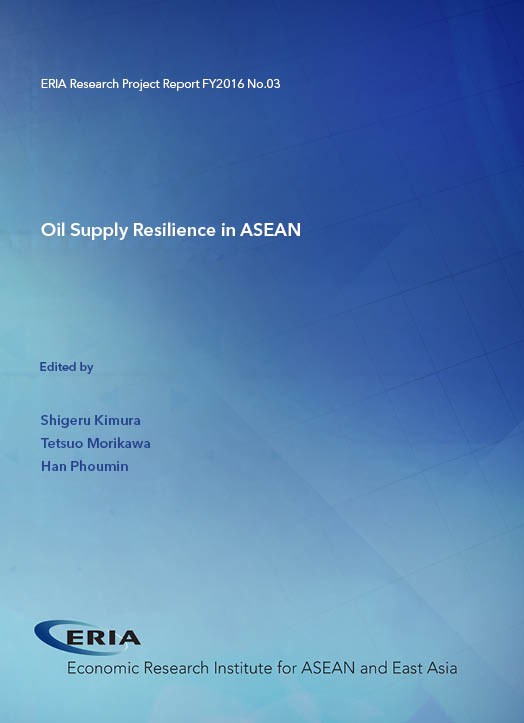Oil Supply Resilience in ASEAN

Print Article:
The study of oil supply resiliency aims to share Japan's experience with ASEAN countries in dealing with oil supply disruption either from abroad or domestically as a result of natural or artificial disasters. After the Great East Japan Earthquake in 2011, Japan's supply of oil products, gas, and electricity was disrupted in some regions. As a result, the government and the industry comprehensively reviewed their energy policies after the event. Domestic oil supply was one of the issues, and a set of measures were taken to ensure the stable supply and the swift recovery in case of disruption.
The increasing oil demand in ASEAN countries threatens supply security. Yet, oil stockpiling and other security measures have not been developed to the level of countries of the Organisation for Economic Co-operation and Development. Many ASEAN countries are exposed to various risks of supply disruption, such as natural disasters, accidents, and terrorist attacks. The study analyses the current status of relevant oil supply security activities in the ASEAN region, identifies the required actions to enhance resilience in oil supply security, and proposes measures to enhance oil supply resilience in the region by using Japan's experience after the earthquake in 2011.
Full Report
Contents
List of Abbreviations and Acronyms
Chapter 1. Oil Supply Resilience in Japan
Chapter 2. Oil Supply Resilience in Selected Countries in the ASEAN




